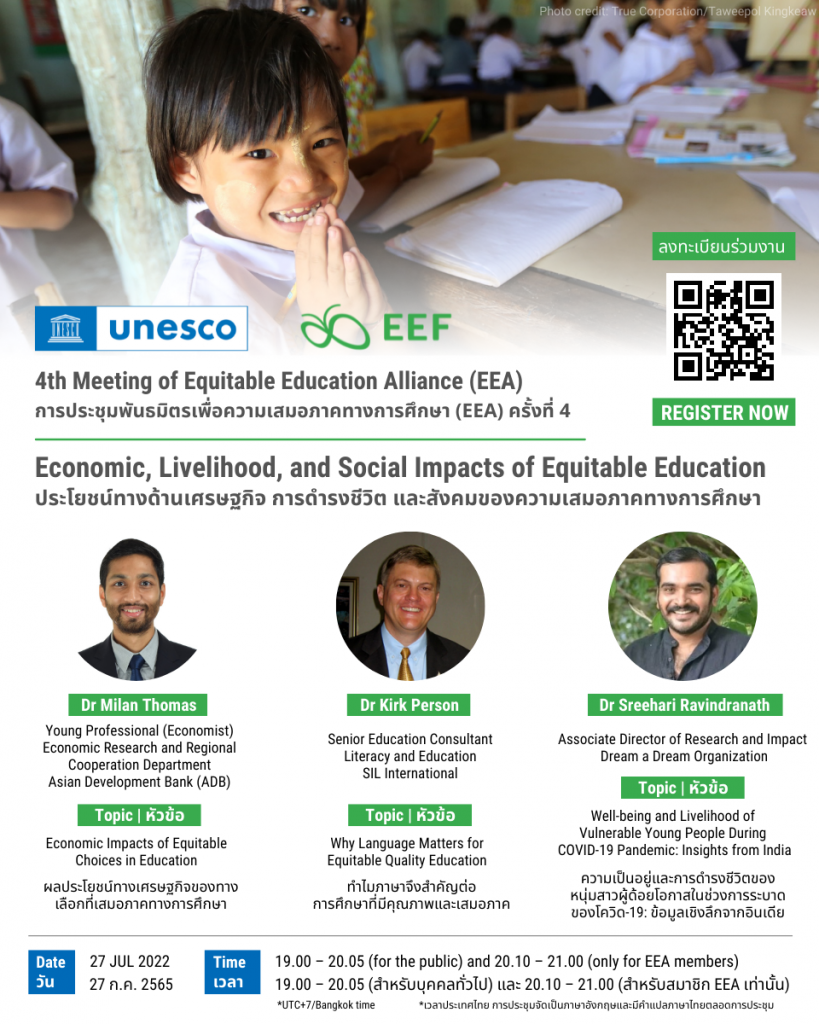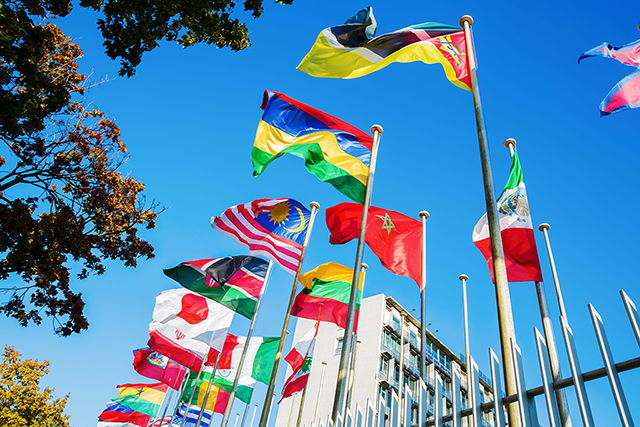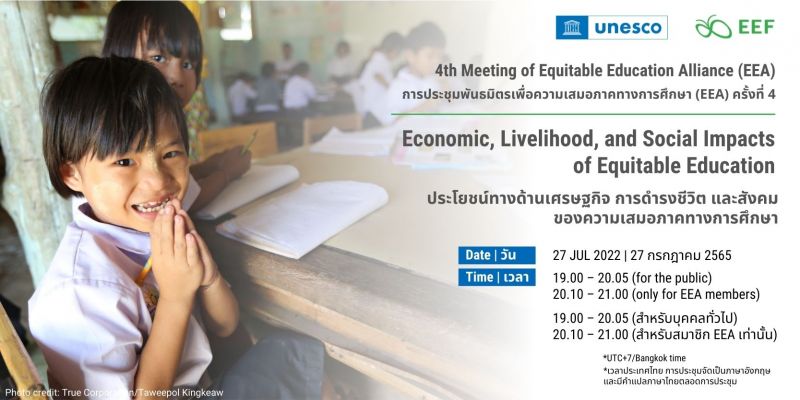4th Meeting of Equitable Education Alliance (EEA): Economic, Livelihood, and Social Impacts of Equitable Education
Equity in education is a core concept and principle speaking to the goal of ensuring that all individuals achieve their educational potential, and that nobody is left behind. It also means that individual traits or contexts, such as gender, ethnic origin, family background, or economic condition should never prove to be obstacles to anybody’s acquiring at least a basic level of education and skills.
Efforts at reducing the number of out-of-school children around the world has slowed over the past decade. A massive number of children and youth – about 258 million – in Asia and the Pacific were reportedly out of school, according to data provided by the UNESCO Institute for Statistics (UIS) for the school year ending in 2018. That number accounts for 59 million children of primary school age, 62 million of lower secondary school age, and 138 million of upper secondary school age.
The Equitable Education Alliance (hereafter EEA, or ‘Alliance’) serves as a community of practice of similarly-minded organizations dedicated to improving equity in education within and beyond the Asia-Pacific region. EEA is also an integral component of the framework for the SDG4: Education 2030 Agenda. The Alliance works as a technical body in an informal setting, and it facilitates knowledge sharing, advocacy work, the formation of partnerships for strengthening equity in education systems, and the development of a model of equitable education foundation(s) or mechanisms in Asia and the Pacific.
The UNESCO Asia-Pacific Regional Bureau for Education, with the generous support of the Equitable Education Fund (EEF) of Thailand, cordially invites the public to attend the open part of the 4th Meeting of Equitable Education Alliance (EEA) to discuss the economic, livelihood, and social benefits of equitable education, to learn about the EEA network, to and explore collaboration opportunities.
The meeting will be held on Wednesday, 27 July 2022 at 19.00 – 21.00 (UTC+7) and comprises two parts: an open part for the public, at 19.00 – 20.05, and a closed part for official EEA members, at 20.10 – 21.00.
Key Questions and Discussion Points
- Showcase the economic, livelihood, and social benefits of equitable education for society overall.
- Bring together organizations working towards equity in education to explore collaboration opportunities, and as agreed upon to be used as a basis for further development of EEA.

1st Presenter: Economic Impacts of Equitable Choices in Education
Dr Milan Thomas
Young Professional (Economist)
Economic Research and Regional Cooperation Department
Asian Development Bank (ADB)
2nd Presenter: Why Language Matters for Equitable Quality Education
Dr Kirk Person
Senior Education Consultant
Literacy and Education
SIL International
3rd Presenter: Well-being and Livelihood of Vulnerable Young People During COVID-19 Pandemic: Insights from India
Dr Sreehari Ravindranath
Associate Director of Research and Impact
Dream a Dream Organization
Date and Time:
27 July 2022, 19.00 – 21.00 (UTC+7)
Meeting Modalities:
Zoom Conferencing
Register for the Open part now!
Link: https://unesco-org.zoom.us/webinar/register/WN_HCXq3Oi-TUaxoVMTlwZVKg
If your organization is working and/or providing technical support towards equitable education and would like to be considered for official membership to the Equitable Education Alliance (EEA) and, therefore, qualify for attending the closed part of the meeting, please contact Papol Dhutikraikriang, Assistant Project Officer, Literacy and Lifelong Learning, UNESCO Bangkok at p.dhutikraikriang(at)unesco(dot)org
Re-watch the meeting







